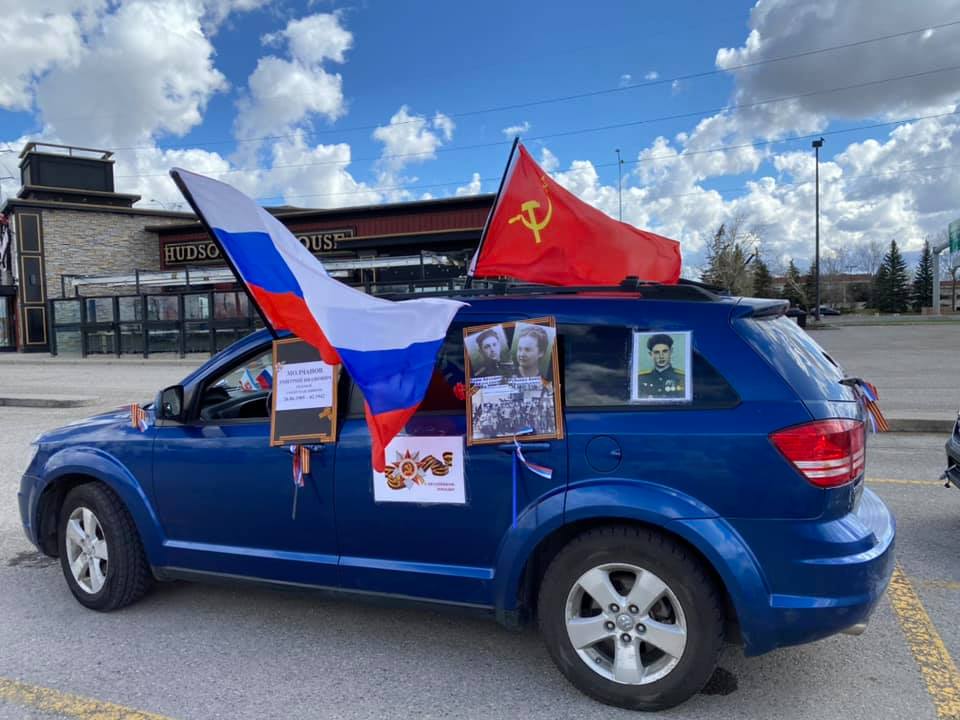Not a new phenomenon
Such was the case in Estonia in 2007, when Russian nationalist extremists coordinated with the Russian embassy in Tallinn to violently react to the relocation of a monument to Red Army soldiers, erected by Soviet authorities during the illegal occupation of Estonia. Riots, arranged by the neo-fascist Nightwatch group, threatened to destabilise the country and were coordinated with cyberattacks by the Russian military intelligence that crippled Estonia’s digital infrastructure for several days.
Canada’s National Security and Intelligence Committee of Parliamentarians recently issued an exhaustive report that warned of Canadian ethnocultural communities being used by malign foreign actors – Russia and China specifically – to manipulate Canadian political decision making.
In that parliamentary report, it is unambiguously stated that “states that conduct foreign interference activities pose a threat to Canada and its fundamental institutions. The targeting and manipulation of ethnocultural communities is the primary means through which these states control messages and seek to influence decision-making at all levels of government. Some individuals willingly act as agents of a foreign power for a variety of reasons including patriotism or the expectation of reciprocal favours. These states also co-opt individuals inside and outside of ethnocultural communities through flattery, bribery, threats and manipulation.”
The report goes on to state that there is clear evidence that foreign governments are harassing activists in Canada and working to interfere with the freedom of media.
Glorifying Soviet militarism and violence
Just as the parliamentary report and other intelligence agencies have warned, a group of Russian nationalists who have been radicalised by Russian state propaganda, have now been co-opted as part of the Kremlin’s information warfare against Canadian critics, aided by an army of Kremlin trolls and bots.
The radicalisation is extreme and the language used echoes that of other radicalised groups. In comments made by these extremists, the Soviet WWII effort and occupation of the Baltics are often referred to as a “holy” war and history. They glorify Soviet militarism and violence. Small children as young as toddlers are dressed up as Red Army soldiers and given replica guns to condition them to glorify Soviet militarism – even in Toronto at the Soviet Victory Day Parades.
These extremists regularly accuse critics of the Putin regime of being “Ukrainian”, “Zionists”, “gay”, among other things, just as they have bombarded me with these labels over the past days; not because they might have innocently mistaken me as being any of these good things, but because they feel these are among the worst insults to attack and belittle critics; these terms are used with extreme malice and hate.
Historical facts should be respectfully acknowledged
History is at the core of this issue and it has been weaponised by the Kremlin so that radicalised Russian nationalists in Canada, the United States, Europe and beyond, can use it to polarise our societies – as they do with Soviet Victory Day. These efforts are designed to marginalise and delegitimise the ethno cultural heritage of millions of Canadians whose families fled Soviet repression and occupation in WWII and afterwards.
While Russia’s significant contribution to ending Nazi tyranny in Europe – as much if not more so than any other single allied nation – should be respectfully acknowledged, and the victims always remembered, so, too, should the suffering and the all victims of Soviet terror, before and after the war, never be forgotten or marginalised by Russian propagandists.
Russian state media and propaganda, which is allowed to freely broadcast in most western countries, is a major contributor to this growing radicalisation and cult of the Soviet victory. It breeds loyalty to Putin and hate towards anyone who questions his authority and his false historical narratives – including entire groups, such as the LGBTQ community, Ukrainians and anyone of Baltic heritage.
Such attacks have happened in the past, and they will continue so long as Vladimir Putin and his clan of corrupt and repressive kleptocrats remain in power.
Freedom-loving, tolerant Russians are the majority
I am proud to have many Russian friends, who share a common love of freedom and tolerance and with whom I have the honour of working with in common cause, for human rights and democracy. They are the majority, not this rage filled mob of radicalised extremists who prostrate themselves to Putin and Stalin.
The intent of the radicalised Russian nationalists is to silence the critics, regardless of ethnic background or language. Those who stand up, become targets for smears and hate, and no one is safe. They will attack the leaders of our nation, like Chrystia Freeland (the deputy prime minister of Canada), down to the activists who criticise the Putin regime and challenge his hyper-propagandised version of history, as the Canadian parliamentary committee has warned us.
What is clear is that those who believe in democracy, truth and justice, must stand together, and not allow regimes like those in Moscow to intimidate us into silence.
Marcus Kolga, Estonian World, May 2020
Marcus Kolga, an Estonian-Canadian filmmaker and journalist, who last week came under attack by a group of radicalised Russian-Canadian nationalists, writes that the radicals who deny the Soviet occupation of the Baltic states and glorify the Soviet dictator Joseph Stalin, have been co-opted as part of the Kremlin’s information warfare against Canadian critics, aided by an army of Kremlin trolls and bots.




